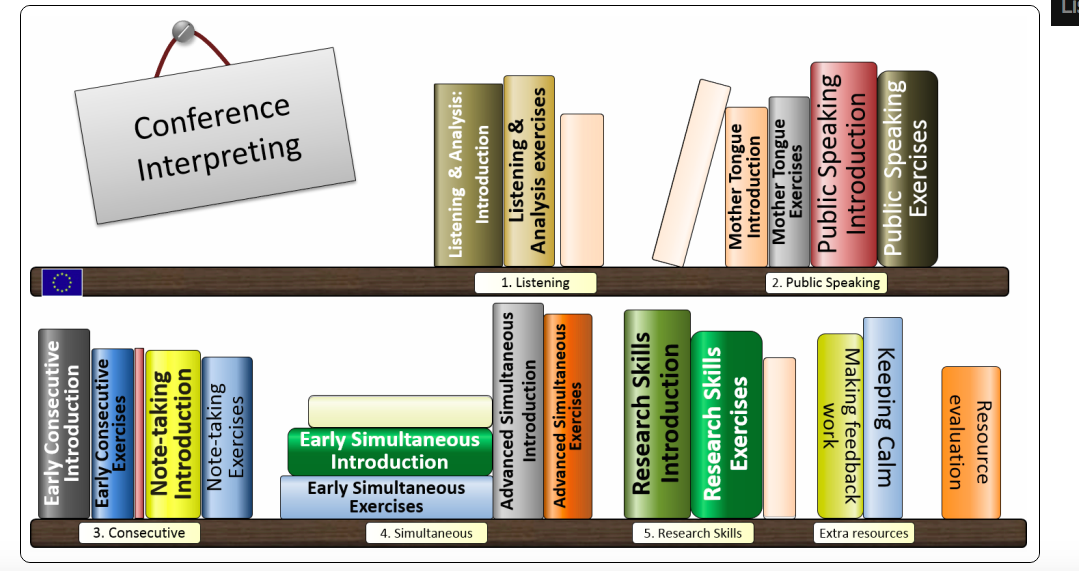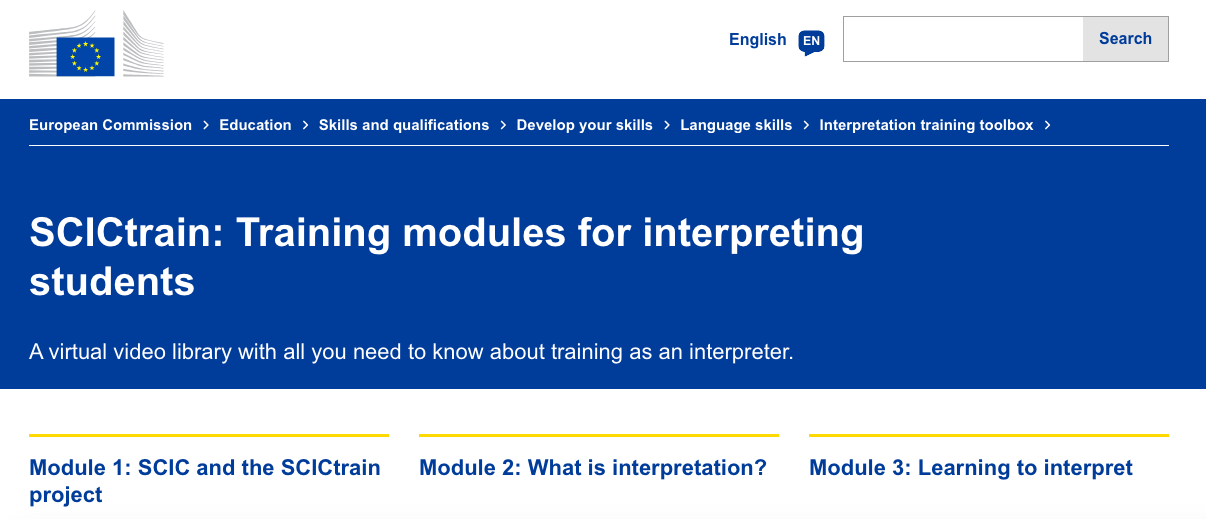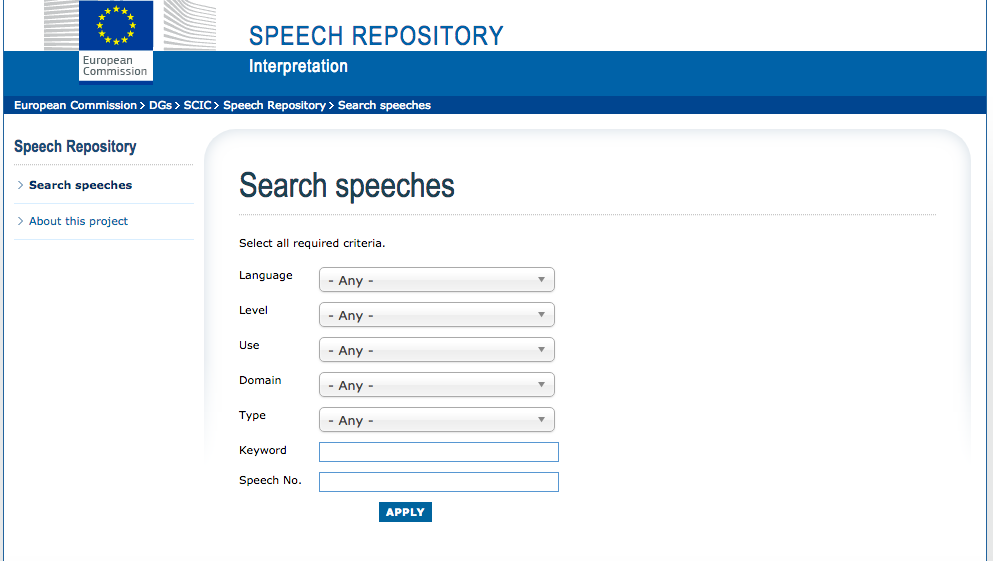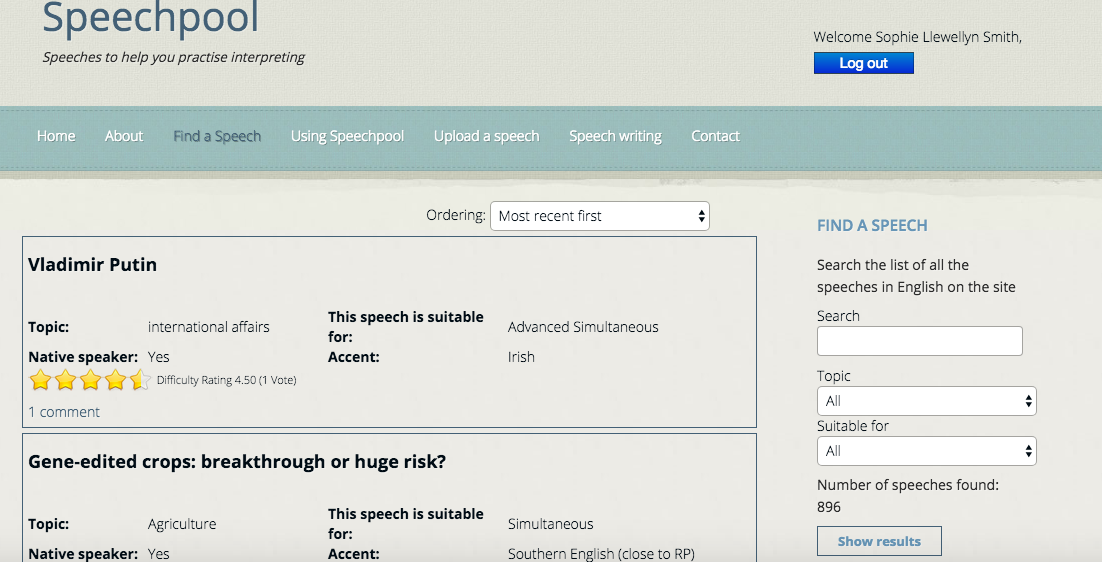I cannot teach anybody anything, I can only make them think. – Socrates
I’ve been an interpreter trainer for fifteen years, and I can pass on plenty of tips and tricks for improving interpreting skills, as well as teaching technique. But learning to interpret is a process of learning by doing, so I see my role far more as that of a guide and mentor than a teacher.
My real goal is to help students and trainees become independent learners. Interpreting, like so many skills (from playing a musical instrument to cooking, from driving a car to Argentinian tango), requires a huge amount of practice. Classroom time is not enough; to improve your skills, you need to do a lot self-study. And by that, I don’t mean navel-gazing! I don’t know who coined the term ‘self-study’, which sounds horribly narcissistic; call it what you will, self-study, self-learning, independent learning, or homework, it’s a must.
Luckily, modern technology means you can practise your interpreting skills and improve your knowledge of your chosen field in the comfort of your own home.
Today, I wanted to share with you my top 3 websites for boosting your skills.
1. ORCIT (online resources for conference interpreter training)
ORCIT is a collaborative project which aims to address the five core skills any successful conference interpreter needs: listening and analysis, public speaking, consecutive interpretation, simultaneous, and research skills.
The interface is quite visual, as the material is organised in books on a virtual bookshelf. You can click on book titles such as ‘note-taking introduction’, and be taken to a theoretical introduction, as well as practical exercises that you can work through at home.
What I like about it: the ‘theory’ is not at all heavy-going. It’s more a collection of tried and tested principles that are clearly laid out in a pedagogical framework that makes sense. The exercises follow a step-by-step approach, and recap all the sub-skills you need to acquire in a very structured way.
I also like the fact ORCIT is available in several languages! Apart from English, you’ll find German, Greek, Czech, Spanish, Lithuanian and Slovenian on the site.
What’s lacking: more practice material! It’s rather unfair to fault the site for this, because it’s not designed as a repository of speeches. But once you’ve worked your way through the theory and exercises, you’ll need to look elsewhere for video clips that you can use for practice.
2. SCICtrain
SCICtrain is the European Commission Directorate-General for Interpretation’s attempt to bring together decades of knowledge and experience relating to conference interpreter training in one place.
The website is structured as a series of modules: SCICtrain, what is interpretation, learning to interpret, working as an interpreter, consecutive interpretation, simultaneous interpretation, retour interpretation, and accreditation test. The content of these modules is essentially a virtual library of video clips, some of them covering ‘theory’ (such as note-taking technique), and some being demos, where you can listen to a speech in a particular language (English, French, Spanish, Italian, Portuguese), then watch a professional interpreter tackle it, and finally listen to a discussion between the interpreter and the speaker.
What I like about it: it’s based on sound pedagogical principles, and the material is split up in categories that make sense. I also like the fact you can watch real EU interpreters doing consecutive and simultaneous – a fantastic learning opportunity!
What I don’t like about it: the interface. I don’t find it visually appealing, and above all, it’s more or less a series of links to video clips, with nothing more than a title to let you know what you’ll be watching. It’s quite difficult to find what you need. There’s no text to read, and no ‘framing’ of the clips to explain what you can do with them, or where they fit in the pedagogical framework of an interpreting course, for instance. It’s not user-friendly enough for me, and I can’t find any supporting material or anything downloadable – streaming only!
3. SCIC Repository
The SCIC speech repository is a vast virtual library of practice material for conference interpreters and students. As well as ‘pedagogical material’ (i.e. speeches designed specifically for practising interpreting skills), it houses recordings of parliamentary debates, press conferences and interviews, in all the EU languages and more (e.g. Chinese), and in large quantities.
What I like about it: the interface, while not the most beautiful, is simple to use. You can search by language, level, use (e.g. consecutive or simultaneous), domain (e.g. agriculture, transport), and speech type. This is particularly useful for those who are preparing for an accreditation exam, as it allows them to search for test-type speeches. The sound and image quality are excellent. If you’re on the private version of the site, available only to students at universities with which SCIC cooperates, you can use a special app to record your performance, allowing you to listen back to it and analyse your performance, as well as sharing it with others (your tutor, or other students).
SCICtrain’s weaknesses: for me, the biggest weakness is the slow turnover. Some of the speeches are excellent exercises, but nearly 10 years out of date, which renders them almost useless for interpreting practice. The grading of some speeches is still problematic, despite considerable efforts by the SCIC team to have them regraded in a more consistent fashion. And in some languages, there is hardly any pedagogical material available (for instance, in Greek). Finally, while the ability to search by type and difficulty is essential, there are other search filters that could be very useful – for example, the ability to search for a speech containing numbers.
4. Bonus website: an honourable mention for Speechpool
Disclaimer: for those of you who may not know, Speechpool is my site, so I could wax lyrical about its strengths…and also its weaknesses!
What’s great about Speechpool: it’s a collaborative effort. The idea is that interpreting students can watch the video clips, but also upload their own. It covers many languages and the turnover on the English page is very rapid. There are more than 800 video clips on the English page – a wealth of practice material, contributed by interpreters (or aspiring interpreters) from all over the globe, so you can expect a variety of accents.
What needs improvement: it’s a popular site, but it could be more professional. The sound quality isn’t always ideal, and there isn’t a great deal of practice material for the smaller languages.
The good news: Speechpool is being overhauled. I’ve already had a sneak preview of the new, bigger and better version. You can expect a whole host of new features to make your practice even more productive, and to allow you to network with other interpreters!
There are plenty of other interpreting-related sites and blogs, but these are the ones I consider most likely to help you improve your interpreting skills.
What are some of your favourites? I’d love to hear them. Leave a comment below!






Very balanced post with good advice for all interpreters looking for resources.
Great recommendations!